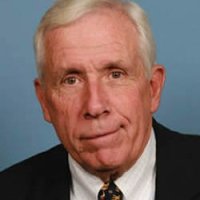The Future of Religious Minorities in the Middle East
A panel of experts shared their views on the current status of religious minorities in Middle East, especially in light of developments after the “Arab Spring,” and provided strategies and recommendations for how these minorities can be protected.
On June 16, the Middle East Program at the Woodrow Wilson Center hosted a meeting, “The Future of Religious Minorities in the Middle East” with Congressman Frank R. Wolf who presented his report on the status of religious minorities in the Middle East based on his recent visit to the region. Marshall Breger, Professor of Law at the Columbus School of Law, Catholic University of America; Robert Destro, Professor of Law and Director and founder of the Interdisciplinary Program in Law & Religion, Columbus School of Law, Catholic University of America; and Chris Seiple, President at the Institute for Global Engagement, provided commentary. Jane Harman, President, Director, and CEO of the Wilson Center, provided introductory remarks and Haleh Esfandiari, Director of the Middle East Program, moderated the event.
Jane Harman introduced Congressman Wolf and referred to his involvement in passing the International Religious Freedom Act (IRF) in 1998. She expressed concern over the recent developments in the Middle East especially in regards to the status of religious minorities and said that she has hope the Middle East will resolve its issues and “become an economic powerhouse where everybody has an opportunity in the success story,” which, according to her, is feasible through religious reconciliation in the region.
Congressman Wolf provided background information on how religious minorities have been the target of repression and societal and communal violence in the last fifty years and stated that the trend has only been exacerbated after the “Arab Spring.” Unless the international community, the United States in particular, takes action on this issue, he said, the future of these communities remains uncertain. He noted that during his recent visit to the region he had engaged with Christian communities in Lebanon, Egypt, and Syria and all had voiced genuine concern about increased repression, persecution, and violence against their communities and felt “abandoned by the West.” According to Congressman Wolf, since the fall of Mubarak’s regime, the Coptic Christians and other minorities in Egypt have been further marginalized and the new blasphemy law has incited fear thus many are leaving the country. He noted that the United States’ response to this issue has been anemic and it appears that both the current and the previous administration are not acknowledging the urgency of this issue.
Breger referred to the current situation of religious minorities in the Middle East as a “tragedy” and asserted that these communities have faced physical and communal danger in the last fifty years. He stated that originally Islam recognized the legal status of Christian and Jewish communities. However, in the last 200 years, they have been mainly viewed as “an imposition of the West,” and, thus, the issue of religious minorities has become more of a political issue rather than a religious one. Breger argued that the solution to this issue has to come from within Islam itself and referred to initiatives by Muslim leaders to bring Muslim scholars together with the aim of developing a code of conduct for the protection of religious minorities and emphasized that such initiatives need to be encouraged. Breger also noted the need to call on the State Department and the U.S. government to put a special emphasis on the issue and address it in a manner that conveys its importance and impact on the relationship between the United States and these countries.
Seiple discussed some points that need to be considered when addressing the religious minorities issue in the Middle East and provided some recommendations. For Seiple, the real issue of religious freedom is how Muslims treat one another—“the Shiite versus the Sunni”—and to understand their theological position toward “the other” within their own tradition. He also stated that the United States needs to develop a vision for the region and lay out ideas and practical solutions for strengthening its capacity to conduct religious engagement in these countries. In addition, Seiple asserted the need for a sustained space for interfaith dialogue on a regular basis to help break stereotypes and facilitate understanding between different religious groups. He admitted that the recent developments in the region have further complicated the situation. However, it is possible “to take the chaos and turn it into an opportunity for a new vision for the broader Middle East,” he said.
Destro stated that although much has been written about religious freedom in the Middle East, there is a lack of understanding among American and European policymakers on the religious and cultural dimensions of the geostrategic realities of the region. He also noted that the American news media, especially the American religious press, need to be more engaged and provide reports and analysis on what is happening with religious minorities in Middle East. Destro argued that due to this lack of understanding about the religious dynamics of the region, the United States does not have a clear vision for what a desirable outcome looks like and what it entails, and, thus, it does not know with whom to engage in order to achieve that desired outcome. According to Destro, in order to create a more tolerant environment in the region, American religious groups should be brought into efforts to engage with religious groups in Middle East, and the U.S. government should actively support these initiatives. He ended on the note that religion should be viewed as a solution and not a problem.
By Afarin Dadkhah, Middle East Program
Speakers



Hosted By

Middle East Program
The Wilson Center’s Middle East Program serves as a crucial resource for the policymaking community and beyond, providing analyses and research that helps inform US foreign policymaking, stimulates public debate, and expands knowledge about issues in the wider Middle East and North Africa (MENA) region. Read more
